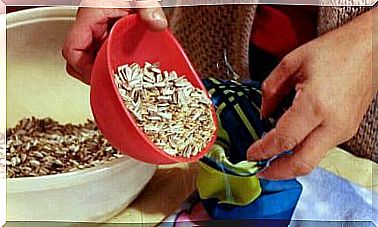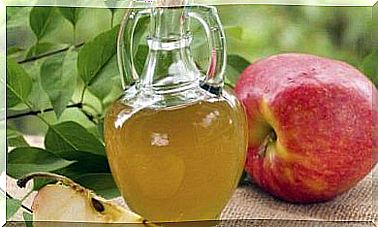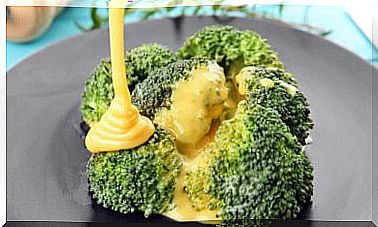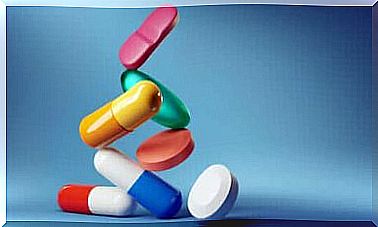Reasons To Include Methionine In The Daily Diet

Intake of methionine in the daily diet is important. This is because you can only obtain this amino acid that plays such a fundamental role in normal development through the food you eat.
Methionine deficiency is actually rare, although it can lead to growth retardation, muscle atrophy, liver damage, lethargy and skin damage. Today’s article will discuss its features and the best sources for it.
What is methionine?
It is an amino acid that contains sulfur – amino acids are the building blocks of proteins, the most important structural component in the body.
In addition, methionine is one of the nine essential amino acids for adults. None of them are more important than the rest, and the body needs them all to be able to form its structures and perform certain functions.
However, essential amino acids differ from the rest because you can only get them through your diet. The body is not able to synthesize them, and this will lead to deficiency in those who do not eat the required amounts.
The best sources of methionine in the diet
Foods of animal origin are the main sources of methionine because animal proteins are whole. This means that they provide all the essential amino acids in the required amounts. Thus, the safest and highest contributions to methionine will be in:
- Chicken, turkey, beef and pork
- Fish, especially in tuna, anchovies, mackerel, sardines and haddock
- Egg
- Parmesan, romano, gruyère, Tilsit or Edamer cheese among others, and even in powdered whole milk
However, animal foods are not the only sources. In fact, certain foods such as soybeans, chickpeas, quinoa, pistachios and amaranth can provide whole protein.
Methionine is present in larger amounts in rice, quinoa, oats, Brazil nuts and sesame, and in smaller amounts in legumes such as beans.
Vegans should therefore eat the right amount of whole grains, legumes, seeds and nuts to get it.

Ways to introduce methionine into your daily menu
Methionine must be present in the daily diet, just like all other amino acids the body needs. The best way to ensure adequate intake is to include good sources of protein in every main meal of the day.
This amino acid has many positive effects on the body, but no nutrients are magical in themselves. The most important thing is that they are present in a balanced way and through a healthy and balanced diet.
As you can see, many other foods are good sources of protein and you can add them to a regular well-balanced diet. Thus, intake of recommended amounts of methionine should not be a problem for healthy people with a diet tailored to their needs.
on the other hand, an excess of methionine is harmful and leads to negative side effects. This is why you should not take supplements unless a doctor prescribes them.
Possible negative health effects are related to the presence of homocysteine, which is another amino acid that appears as a result of methionine metabolism.
In addition, high levels of homocysteine in the body can cause inflammatory damage associated with vascular and neurological diseases. Some people are more vulnerable than others.
The main functions of this amino acid in the body
As a component that is part of proteins, methionine is needed to build many of the body’s main structures such as bones, tissues and muscles. It is also part of enzymes, hormones and membranes, and is needed as a precursor to vitamins.
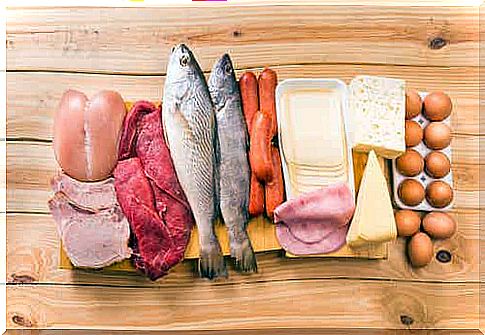
The other functions of methionine
- It has an antioxidant effect, as it is able to convert methionine to cysteine. Cysteine, in turn, is a precursor to glutathione, a major antioxidant. Furthermore, glutathione can counteract free radicals and increase the life of some antioxidant vitamins, such as vitamin C and vitamin E.
- It protects the cardiovascular system because sulfur amino acids, such as methionine and cysteine, play an important role in the breakdown of lipids. This is why it can be helpful in lowering blood cholesterol and preventing the formation of arterial plaque.
- It supports the normal functioning of the immune system. A normal normal intake of cysteine and methionine is a must to synthesize these proteins.
- Methionine has a high sulfur content. In addition, this trace element is needed to maintain certain body tissues, such as skin, hair and nails in good condition.
- It also has a detoxifying effect and can eliminate harmful substances such as heavy metals thanks to the sulfur content.
Adequate amounts in the diet and from good sources
Finally, methionine has important functions in the body, as it is a component of proteins. Thus , it must be present in the daily diet because it is a molecule the body cannot synthesize on its own.
A diet rich in high quality proteins guarantees the recommended daily amounts. An excess of methionine can actually be due to a health problem, although it is difficult to exceed the safe amounts through food alone.

